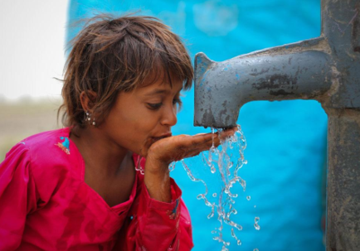German Committee for UNICEF

UNICEF works in the world’s toughest places to reach the most disadvantaged children and adolescents – and to protect the rights of every child, everywhere. Across more than 190 countries and territories, we do whatever it takes to help children survive, thrive and fulfill their potential, from early childhood through adolescence.
The world’s largest provider of vaccines, UNICEF supports child health and nutrition, safe water and sanitation, quality education and skill building, HIV prevention and treatment for mothers and babies, and the protection of children and adolescents from violence and exploitation.
Before, during and after humanitarian emergencies, UNICEF is on the ground, bringing lifesaving help and hope to children and families. Non-political and impartial, UNICEF is never neutral when it comes to defending children’s rights and safeguarding their lives and futures.
Die Projekte der UNICEF
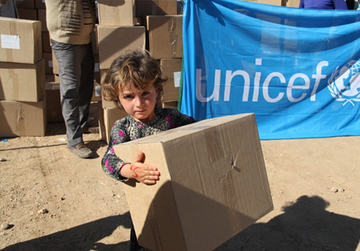
Winter help for refugee children
Refugee children need our help
Hundreds of thousands refugee children in Syria, Northern Iraq and the neighbouring countries need urgent help to overcome the cold period of the year. UNICEF provides winter packages with warm clothes and shoes and more life-saving reliefs.
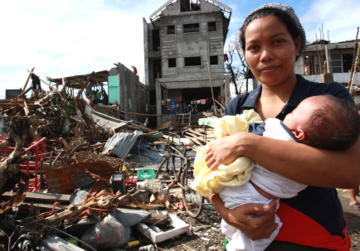
Emergency aid for the Philippines
Help for the people affected by the typhoon Haiyan
The typhoon Haiyan has left a swath of destruction at the Philippines. Almost six millions of children are affected, reams of them do not have a home any more. UNICEF helps and provides clear water, hygiene and drugs.
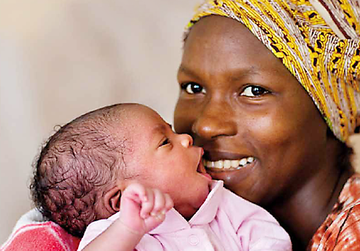
Time to share
Because babies need our help
6.9 millions of children worldwide die before their 5th birthday - 40 percent of them do not even reach an age of a month. About 287,000 do not survive the birth of their child each year. With the campaign "Time to share", UNICEF appeals for donations for the surviving of newborns and their mothers.
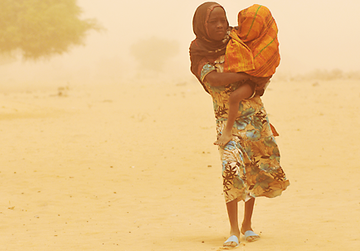
UNICEF emergency aid in the Sahel
A silent catastrophe: malnutrition in the Sahel
According to estimations, more than one million children in eight countries are threatened by severe malnutrition in the next months. Because of droughts, poor harvests, high food costs and extreme poverty, many families cannot feed themselves with enough food.
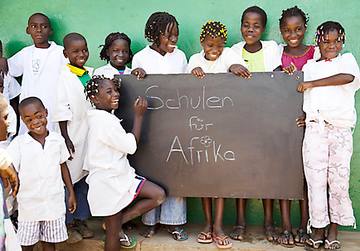
UNICEF – Schools for Africa
A place in the classroom for every child
Every child has a right on education. Though, in African countries south of the Sahara, every third child does not attend school. Many families are too poor to pay the school material for their children. Qualified teachers are missing and the AIDS epidemic tightens the situation-
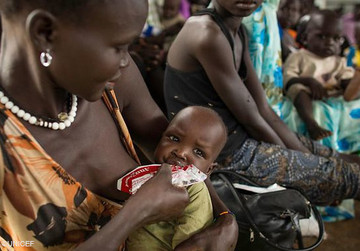
Aktion Hunger
Das Überleben hungernder Kinder sichern
UNICEF ruft unter dem Titel „Lass die Zukunft nicht verhungern“ zu Spenden für Kinder und Familien auf, die an Hunger leiden. Weltweit leidet heute jeder neunte Mensch an Hunger und insgesamt 150 Millionen Kinder sind wegen chronischer Mangelernährung unterentwickelt.
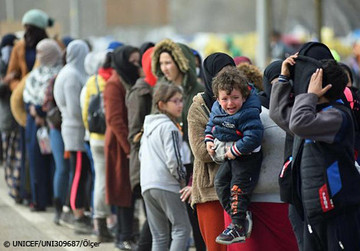
UNICEF hilft Flüchtlingen in Griechenland
UNICEF hat in den vergangenen Jahren in Griechenland tausende geflüchtete und migrierte Kinder und ihre Familien unterstützt. Dazu gehört es, sicherzustellen, dass diese Mädchen und Jungen Zugang zu Kinderschutzmaßnahmen, psychosozialer Unterstützung, Gesundheitsversorgung und Bildung erhalten.
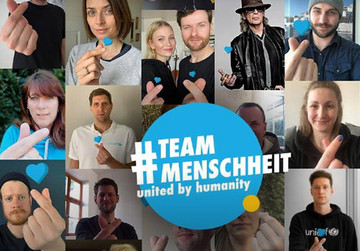
#TeamMenschheit
Zeichen setzen für Zusammenhalt
UNICEF konzentriert sich im Kampf gegen das Coronavirus auf das, was es am besten kann: besonders benachteiligte Kinder und Familien in Kriegs- und Krisengebieten mit Hilfsgütern und Unterstützung zu erreichen. Dabei arbeitet die Organisation Hand in Hand mit der WHO, Regierungen und vielen verschiedenen Partnern zusammen.
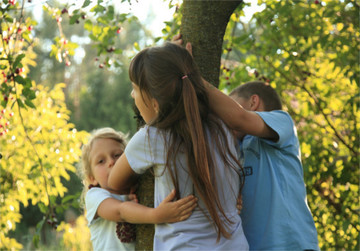
Foster Care Croatia
Kroatien: Kindern ein Zuhause geben
Das behütete Aufwachsen im Kreis vertrauter Menschen ist für die Entwicklung eines Kindes außerordentlich wichtig. Keine Institution kann das ersetzen, was eine Familie ihm geben kann. Doch noch immer müssen in Kroatien viele Jungen und Mädchen in Kinderheimen aufwachsen. UNICEF Kroatien setzt sich dafür ein, dass Kinder, die nicht bei ihren leiblichen Eltern leben können, in Pflegefamilien ein neues Zuhause finden.
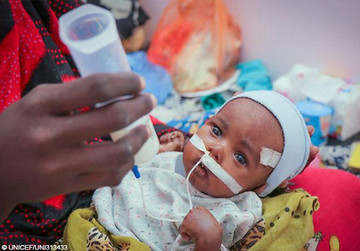
UNICEF-Hilfe für Jemen
UNICEF hilft in der derzeit größten humanitären Krise der Welt
Im Jemen herrscht die derzeit größte humanitäre Krise der Welt. Nach sechs Jahren Bürgerkrieg sind dort schätzungsweise 2,3 Millionen Kinder unter fünf Jahren von akuter Mangelernährung bedroht. Die Corona-Pandemie verschärft die Situation zusätzlich. Die UNICEF-Nothilfe im Jemen versorgt Kinder mit therapeutischer Spezialnahrung und stellt überlebenswichtige Covid-19-Impfdosen zur Verfügung.
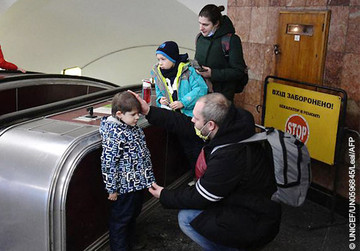
UNICEF emergency responseaid for children in Ukraine and neighbouring countries
The situation in Ukraine and the region continues to be devastating and the on-going violence has created a child rights crisis. Children are in urgent need of support. UNICEF is working in Ukraine and many neighbouring countries to provide families - who have fled the war - with medical care, psychosocial and educational support, and urgently needed relief supplies. UNICEF and its partners have set up contact points for families. In refugee-hosting countries, UNICEF is supporting governments to ensure access to services, protection and social assistance for Ukrainian children, their families and host communities.
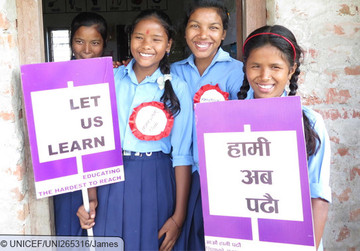
UNICEF “Let Us Learn” Initiative
Education gives girls and boys around the world hope for a better life. But many children never get the chance to go to school. Many live in poverty and in remote regions where access to an education is difficult. Conflict and discrimination are also factors that inhibit education. Girls are particularly affected by these challenges. With the international education initiative, "Let Us Learn", UNICEF helps disadvantaged children in five countries: Afghanistan, Bangladesh, Liberia, Madagascar and Nepal. The goal is to give the most marginalized girls and boys access to quality education.
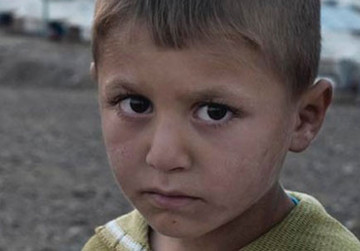
UNICEF help for Syrian Refugees
Help for refugee children in Syria
More than a million children are fleeing the gun fire and millions more are caught in Syria in the midst of the battle. These children desperately need help. They are missing the necessities. UNICEF provides them with drinking water, medications and other items essential for survival.
